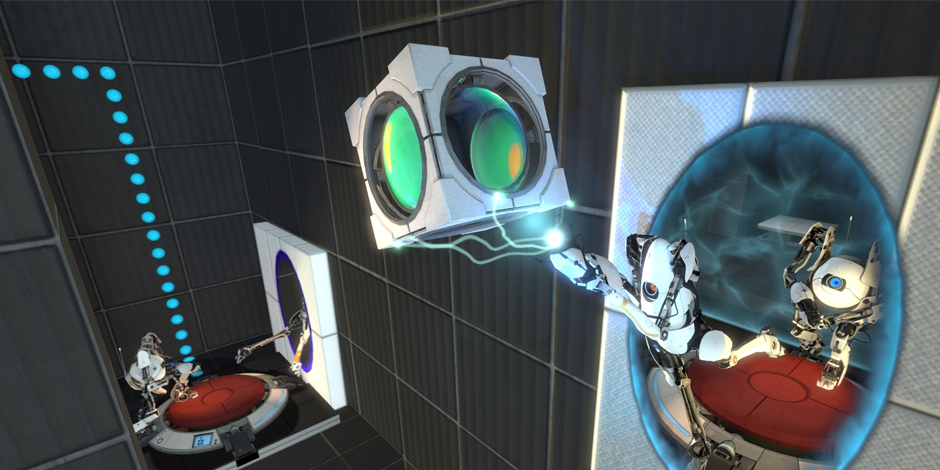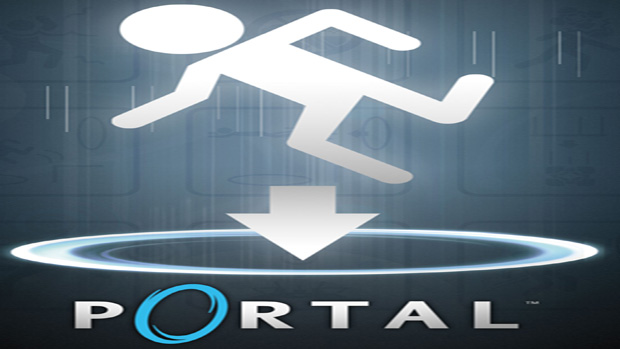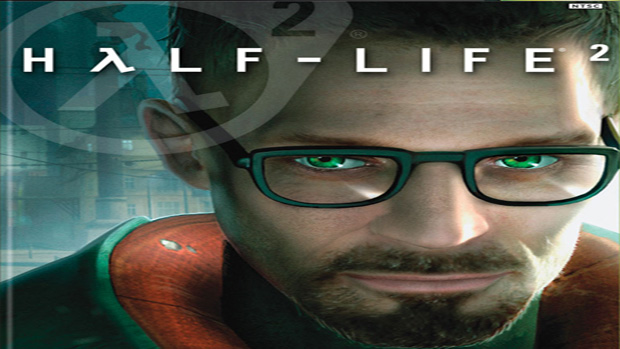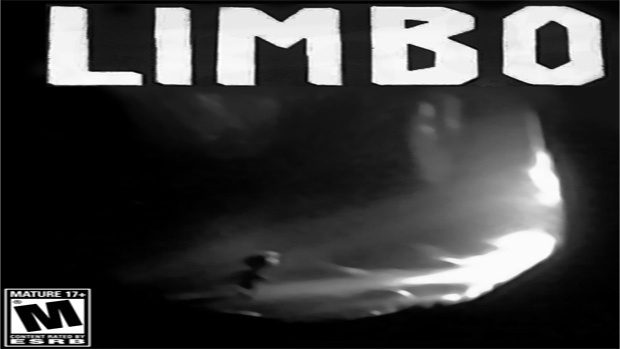GamesRadar+ Verdict
Pros
- +
More brilliant puzzles
- +
Impeccable dialog
- +
acting
- +
and story
- +
A cooperative mode that's actually cooperative
Cons
- -
It can't have the impact of Portal
- -
It's big
- -
but not long
- -
'Still Alive' is tough to follow
Why you can trust GamesRadar+
Portal 2 isn't everything I wanted it to be, but how could it have been? In 2007, Portal jumped out from behind the release of Half-Life 2: Episode 2, catching us unawares and stupefying our faces off, and we've spent the past four years canonizing it with jokes about Companion Cubes, cake lies, and huge successes. Without the element of surprise, and with an impossible tower of expectations looming over it, the best developer Valve could have hoped to do is make Portal 2 the next best thing. It succeeded.
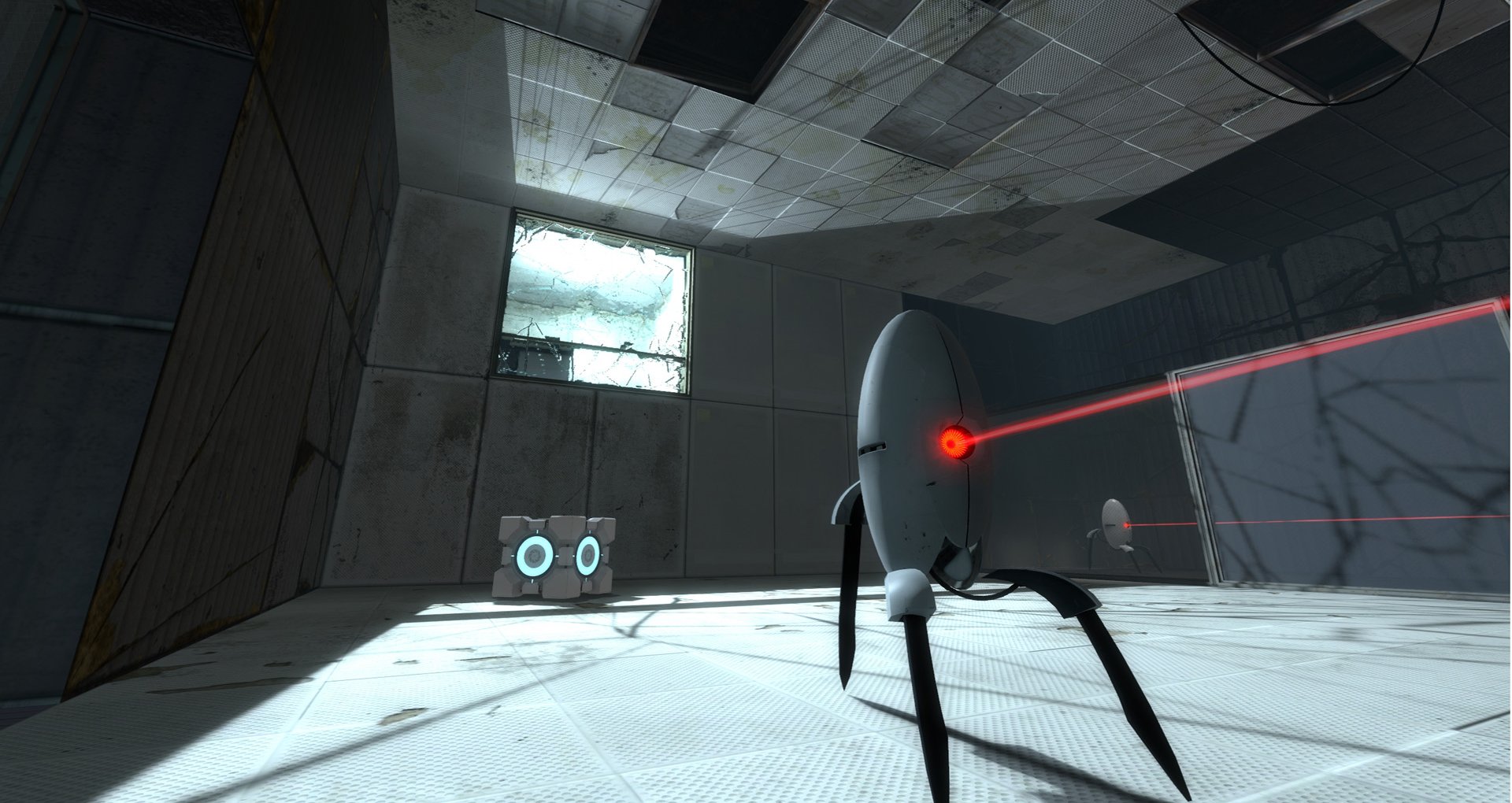
Portal 2 returns the series' protagonist, Chell, to the testing grounds of the massive Aperture Science laboratory for another round of discombobulating puzzle solving, and another chance to escape. If you've somehow never played Portal, Portal 2 will ease you into its puzzles with a gentle learning curve. Go in one portal, go out the other - the primary mechanic seems simple enough, but as the complexity of the 'test chambers' increases, the solutions become increasingly unexpected. One of the primary joys of playing Portal 2 is surprising yourself with your own solutions - despite knowing that each test was designed guide me to toward one solution, I still felt like a genius when my seemingly hackneyed plans actually worked.
If you have played Portal, the first few chapters of Portal 2 will feel like repeating Kindergarten (put the cube on the button - got it), but once the game's new mechanics, such as the Discouragement Redirection Cubes, Aerial Faith Plates, and Repulsion Gel, are introduced, your brain will get its due stimulation.
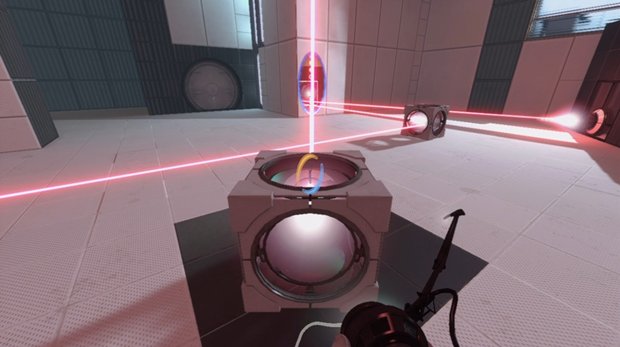
Above: Portal's energy balls have been replaced with lasers (this is a very good thing)
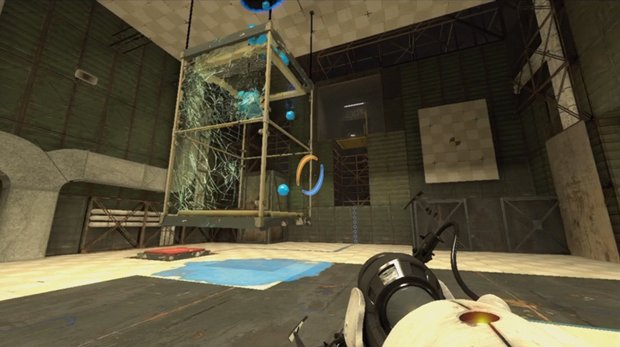
Above: The gels can be cumbersome at first, but once you get used to their properties, they add a significant twist to the puzzles
Mindlessly solving the tutorial puzzles isn't so bad, anyway, because you'll be preoccupied with reveling at the grand set pieces and anticipating every new bit of sublimely witty dialog (GLaDOS is really, really mad) and enthralling plot progression. Unlike Portal, which only briefly pulls back the test chamber walls to reveal the facility's inner workings, Portal 2 is scattered with extended excursions into Aperture's monolithic, mechanical underground empire.
Portal 2 fleshes out the rise and fall of Aperture Science, its maniacal AI overlord, GLaDOS, and its apparent last human test subject, Chell. To that end, it introduces the surprisingly expressive (for a cyclops) Wheatley, a bumbling spherical 'Personality Core,' voiced by Stephen Merchant, and Cave Johnson, Aperture's bombastic founder, whose voice, handled perfectly by J.K. Simmons, bellows from loud speakers in a condemned section of the original facility.
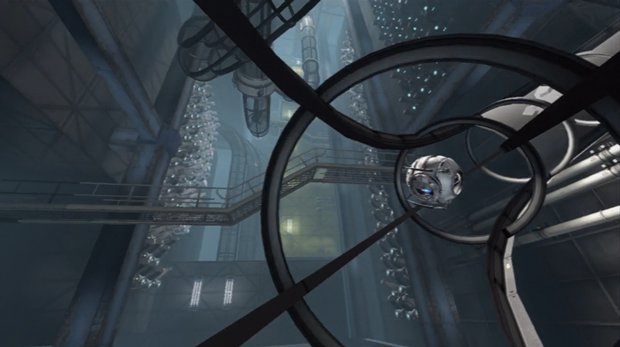
Above: Aperture is really, really big
To sustain a longer experience than Portal, and to offer eager fans the sustenance they craved, Portal 2 had to introduce new characters and tell a bigger, more explicit story, but that inevitably killed some of its charm. At the beginning of Portal, all we explicitly knew was that we were a test subject, and that we had to complete tests to progress. We assumed we'd have to confront GLaDOS eventually, but were given no solid explanation of our situation or purpose aside from what we could gather from GLaDOS' snide remarks and the mysterious scribbles hidden behind wall panels. Portal's understated story is part of what made it so intriguing, but while Portal 2 doesn't swing entirely toward direct exposition, it casts off much of that subtlty.
But what was it supposed to do? Portal 2 couldn't surprise us in the ways we wanted to be surprised and still be surprising, so it surprises us with, well, surprises that I won't spoil for you. Surprises are actually a major reoccurring theme in the game, which feels a bit like an indirect acknowledgment of our desire to be surprised by it. OK, it looks like my critical logic is now looping through portals as well, so I'll move on to my next point, which is that regardless of what anyone wanted from Portal 2, it does everything so damn well that our expectations seem moot.
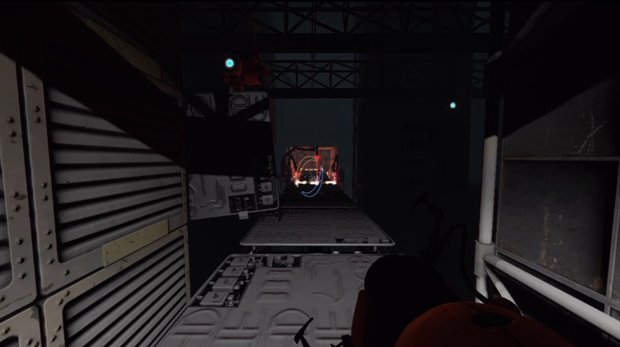
Above: Chell's journey is far more varied than it was in Portal
Portal 2 is more emotional than Portal, without losing the tongue-in-cheek irreverence. At times, I was enjoying the gravity and humanity of the game so much that the silliness bothered me, but it's well-balanced overall. It's puzzles are some of the most refined and inventive challenges I've ever encountered, and every moment of every segment of every chapter felt like a piece of a puzzle that I wasn't aware was being put together until after the picture was in front of me.
Everything in Portal 2 is designed, crafted, and paced to eschew fatigue and keep you thinking, wondering, and smiling. The scripted events are so sharply written, well-timed, and fluidly mixed with the gameplay that by the end of the game, I felt like I was having a conversation with it rather than playing it. Valve is starting to seem more like a techno-psychology laboratory than a game developer (perhaps it outsources product testing to GLaDOS?).
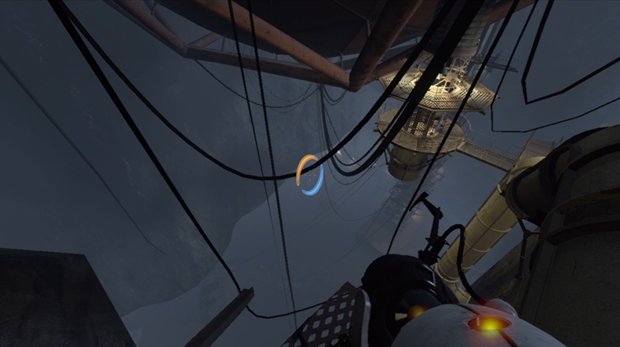
Above: In a couple sections, part of the challenge is knowing where the hell you're going
I'm not saying that the single player experience is perfect. I got stuck a few times, especially during Cave Johnson's segments, not because I had failed to make a logical connection, but because I'd simply failed to see a distant platform, and spent ten minutes looking for a more complex solution. Some players will surely experience the same thing, while others will play through the game without ever being misdirected. It's a minor complaint, and may only be the result of the scale of Valve's ambition for Portal 2.
That ambition also includes a separate co-op mode, which is equally great, just in different ways.
Portal 2's "Cooperative Testing Initiative" pits a pair of lovable robots, P-body and Atlas, against 40-plus GLaDOS-designed test chambers. As you can only really experience the joy of solving each puzzle once, choose your co-op partner carefully - playing with someone who already knows the solutions is no fun.
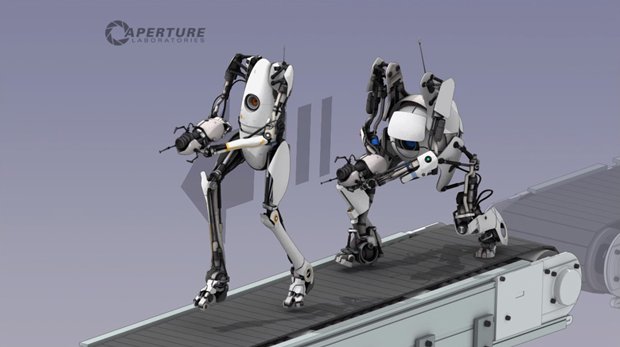
The cooperation in Portal 2's cooperative mode is actual cooperation - that is, it's not one of those "co-op modes" which only entails running next to each other through what might as well be a single-player experience. How do you traverse a gap? Send your partner into an infinite falling loop, then launch her out of a wall. How do you reach an isolated platform at the center of a pit? Simultaneously launch yourselves over opposite sides of the gap and collide mid-air. If you're playing online, a mic is a necessity, though you're also able to mark spots you want your partner to shoot a portal, in case verbal explanation isn't doing the trick.
The little mechanical testers can access the mode's five zones through a spacious hub room, which also displays a few stats (fun fact: my robotic avatar has taken over 20,000 steps). After a brief tutorial to orient the players to cooperative thinking, the test chambers quickly become baffling. If you're not confident with your portal puzzle solving skills, play the single player, which features a much gentler learning curve, before tackling the co-op.
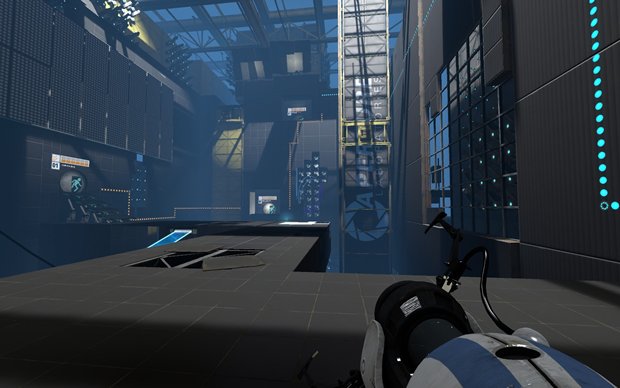
Above: The hub
Once my co-op partner and I were an hour-or-so into the Cooperative Testing Initiative, our awareness of time ceased almost entirely. It was only at around 4 a.m., when the fog of exhaustion made "thinking with portals" nearly impossible, that we called it quits... only to resume the game ten minutes after waking up again.
Though you can't truly die in the mode (when destroyed, the robots are reassembled and ejected from a tube) there are plenty of opportunities for you and your partner to smash, crush drop, and otherwise mangle each other, making trust - or lack of it - a major factor. It's up to you how trustworthy to be, but you can always apologize with one of the characters' Pixar-esque emotes, such as a hug or high-five. Or, if your bumbling companion just stepped off an edge and fell into the void, a belly laugh may be more appropriate. The emotes can even be used to taunt GLaDOS together through her security cameras.
In the end, you can't help but to establish a fist-bump worthy bond with your partner. When the logical leap required to solve a puzzle "clicked" simultaneously for both of us, we excitedly rushed to make the physical leaps to the exit door, and never forgot virtually high-five each other before continuing to GLaDOS' next chamber.
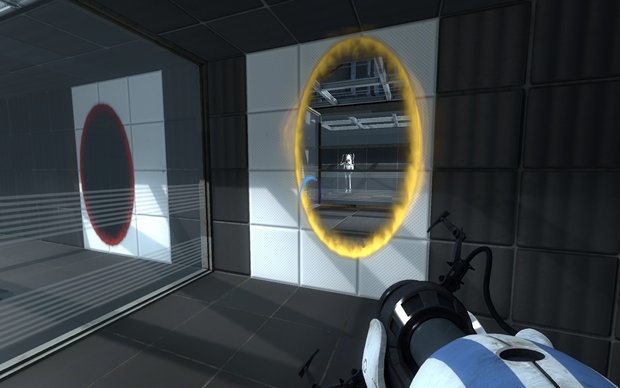
Together, Portal 2's single-player and cooperative modes are massive...just not in length. You can easily complete both portions in a weekend, assuming you don't plan to do too much else. Metaphorically, though, it's massive as shit. You'll be propelled through a titanic, amorphous facility as it actively rebuilds itself. Everything is alive, even the music, which comes and goes as the science gets done, as if the facility is breathing out digital sighs. It's a huge production.
And really, how long would you want it to be? Portal was short for a reason, and to justify its stand-alone release, Portal 2 needed to be longer, but I'm glad it isn't too long. Making it longer would have come at the expense of its structure and pacing, increasing fatigue and diluting the experience.
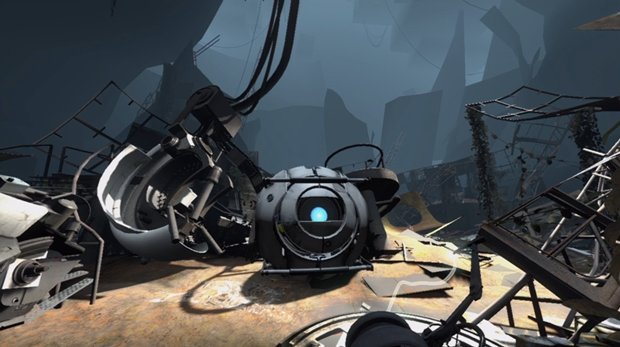
So whatever, good pacing, neat set pieces, that's all cool, but is it really worth $60, you dumb over-hyped editor? Well, first of all, I don't appreciate the tone you read that last part in, but that is a good question, and it took a long time for the blinking cursor on my screen to tell me the answer, which is an anti-climactic "yes."
If I were reviewing Portal 2 strictly as an entertainment product which ended when you beat it, then I may be more skeptical. But even then, I can easily say that I think playing through Portal 2 is as valuable as, say, seeing six really good movies for $60 (a generously low estimation). I can also say that I've spent $60 on dates at lackluster restaurants and forgotten about the expense the next day - not because I'm rich, but because I've accepted the cost of luxuries and entertainment. I wouldn't recommend those restaurants to anyone, but Portal 2 'aint a bland casserole, it's a helluva good production, if not a long one.
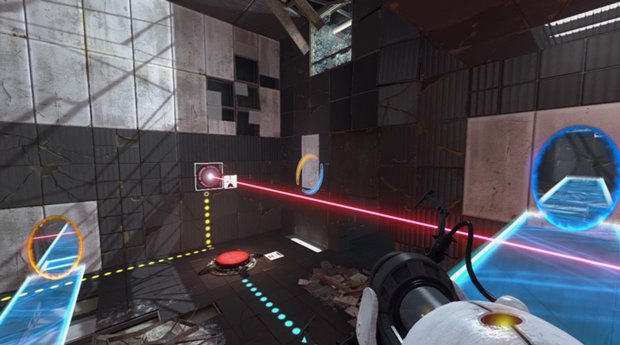
Above: Not a casserole
Of course, I'm not reviewing Portal 2 with a categorically utilitarian mindset - I also have to consider its value as a creative invention, and based on what I've already written, I think it's clear how I feel about that. Valve has, again, produced a landmark for the medium which won't fade out of view for some time.
Half-Life 2? Yes.
What? I know that Half-Life is un-fugging-touchable, but to me, Portal 2 is better paced, contains more interesting characters, is more thought-provoking, more mentally challenging, and far more original. I can fight masked soldiers any day, but what happens in Portal only happens in Portal. Half-Life 2 is great, and may be revered, but I believe that Valve has gotten better at making games since then. Is that so crazy?
Limbo? Yes.
It's a weird, completely unfair comparison, I know. Limbo didn't strive to be anything that Portal is, and the reverse is true for Portal. But they are both unique puzzle-platformers, are they not? And I did have to include at least one non-Valve game in these comparisons, didn't I? What can you compare to Portal? Halo? Psh, that shit is too pedestrian to deserve comparison (I mean that facetiously... but not really). So there you go, Portal 2 is better than Limbo, not that anyone was asking. But they're both great.
Sure, whatever, but aren't you just a typical Valve fanboy, you typical Valve fanboy? Again, watch it with the tone of your internal voice. And yes, I'm a fan of Valve, because Valve has a history of making great games. That doesn't mean I'm not open to disappointment, and I did approach Portal 2 with the concern that it would lose too much of what made Portal great. It did lose some of it, but it made up for it in ways that worked. And if you're wondering, no, the ending doesn't outdo "Still Alive," but again, what could have? Even so, Coulton's words are still stuck in my head, days later...
Apr 21, 2011
Portal 2 couldn't be Portal, but it's the next best thing. It's a longer, funnier, more emotional plummet through Aperture's perplexing laboratory, and its meticulous detail, perfect pacing, and kinetic, mind-expanding puzzles make it a blazingly memorable experience. It's so damn memorable, already feel nostalgic about it.
More info
| Genre | Puzzle |
| Description | This time around, GLaDOS' reign of physics-bending tyranny is a whole new cube game. In fact it's going to make Portal look like a trailer for the main event. |
| Franchise name | Portal |
| Platform | "PS3","PC","Xbox 360" |
| US censor rating | "","","Teen" |
| UK censor rating | "","","" |
| Release date | 1 January 1970 (US), 1 January 1970 (UK) |

